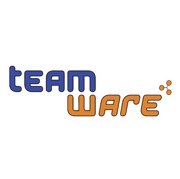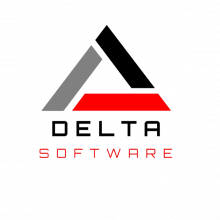
There are 10 Companies in Italy
that provide Hardware Services!
In 2025, the IT Services market in Italy is expected to reach $26.22 billion, with the biggest segment being IT Outsourcing, worth $10.53 billion. The country reached the 26th position in the Networked Readiness Index (NRI), an aggregate index that assesses the countries’ overall environment for innovation and ICTs. It also measures their readiness for ICT uptake, the level of usage by companies, society, and the private sector, and the overall level of impact on society and the economy.
Discover Top IT Companies in Italy specialized in Hardware and other related services. Find the best IT service providers for your projects.
Hardware service is an aspect of IT management that specifically deals with the physical components of information technology. The process encompasses hardware acquisition, continuous maintenance throughout its lifespan, and responsible disposal of outdated parts. Expert hardware asset managers collaborate with various departments and stakeholders across all levels within an organization. According to recent statistics, up to 30% of the total IT budget is spent on hardware, software, and related maintenance and support expenses.
Handpicked companies • No obligation to hire • 100% risk-free
Featured Companies in Italy
This month, the following Hardware companies managed to provide an outstanding service and support. It's worth taking a look.
A fast-growing IT and business solutions company, empowering global businesses with cutting-edge technology and digital innovation.
Explore Top Hardware Companies in Italy
Sono un veterano del mondo SEO e marketing digitale con oltre 22 anni di esperienza nella comunicazione strategica.
Services:
Max Mile specializes in creating tailored digital solutions, including web development, IT integration, and business growth strategies.
Services:
We are a company specialized in the ICT world, characterized by a strong focus on finding solutions that bring technological innovation to our custome...
Services:
A Group Consulting is an international marketing and consulting company that serves clients across the globe.
Services:
DIGITALIZE YOUR BUSINESS Your technology partner for successful il business
WpWeb was founded in March 1997 by a group of professionals with solid and concrete experience in the ICT, marketing and web application development s...
Services:
We are a Creative Agency based in Rome that tries to make a difference. We devolve part of our income to support organisations that save animals.
Services:
Filter Hardware Companies in Italy by Cities
Find the right tech company near you or from a specific city. Some of the best companies might be located in smaller cities.
Find more Hardware companies around the world
TechBehemoths is the world's most advanced and user-friendly platform to match IT Companies with real clients without hustle.
The Italian ICT Industry: Data, Companies and Predictions
Data from the Global Information Technology Report 2019 shows that Italy is one of the countries that improved the most during 2019 in its ability to leverage information and communication technologies to improve its competitiveness and the well-being of its population. In 2025, the IT Services market in Italy is expected to reach $26.22 billion, with the biggest segment being IT Outsourcing, worth $10.53 billion.
The country reached the 26th position in the Networked Readiness Index (NRI), an aggregate index that assesses the countries’ overall environment for innovation and ICTs. It also measures their readiness for ICT uptake; the level of usage by companies, society, and the private sector; and the overall level of impact on society and the economy.
Why Should You Work With Italian IT Companies?
Italian IT companies and web agencies are among Europe’s leaders in software development and computing engineering, having a good price/quality ratio which allows them to be competitive on the European ICT market. With more than 132,400 ICT companies registered in 2025 and around 631,500 professionals working within the industry, Italian companies provide innovative solutions for both local and international clients.
What You Should Be Aware of When Working With Italian IT Companies
High demand for IT services and products on the local market creates, in turn, an even higher demand for IT professionals - a luxury resource for Italian IT companies and for the entire industry. This makes Italian IT and web agencies outsource professionals and talents from other, cheaper countries, which, on average, makes the service quality lower than it should be.
Even though Italian companies are encouraged to provide long-term training sessions for underqualified outsourced professionals, this is a costly process that not all companies are willing to undertake.
Are Italian IT And Web Companies Reliable?
In spite of tough conditions and challenges Italian IT companies and the entire industry face, Italy has its own niche of the market that has been loyal for years, and reports from Forbes reveal that the trends will keep the same pace. This business model of moving slowly and getting long-term contracts enables Italian IT companies and web agencies to increase their reputation as trustworthy.
How the Italian IT Industry Relates to the Neighboring Countries
Italy has been the first country in the world to approve a Declaration of Internet Rights through a parliamentary vote: the Italian Bill of Internet Rights was ratified on 28 July 2015 by the Chamber of Deputies and paves the way for digital citizenship. Additional progress has come in the form of the Italian Freedom of Information Act and the modification of the copyright law of 1941, which has been updated to cover telecommunication networks.
The IT industry in Italy is very close to neighboring France and Switzerland, with investment, trade, and partnerships. Italy’s sector is developing with the government’s support for digital optimization. Switzerland offers higher salaries and a business-friendly environment. France, with Switzerland, provides various perks in innovation and market access for Italian IT companies.
What is Hardware and what are its benefits for your projects?
Hardware service is an aspect of IT management that specifically deals with the physical components of information technology. The process encompasses hardware acquisition, continuous maintenance throughout its lifespan, and responsible disposal of outdated parts. Expert hardware asset managers collaborate with various departments and stakeholders across all levels within an organization. According to recent statistics, up to 30% of the total IT budget is spent on hardware, software, and related maintenance and support expenses.
Primary Categories of Hardware Asset
Hardware asset are generally grouped into four primary categories:
- End-user devices - Employees use a variety of devices in their everyday work, including computers, smartphones, tablets, SIM cards, and other similar gadgets.
- Network and telecom hardware serve as support equipment for facilitating both digital and analogue communication. This category includes various devices such as routers, load balancers, switches, as well as telephone and video conferencing systems.
- Data-center equipment are hardware that enables the effective functioning of data centers. This includes servers, utilities, and security devices.
- Peripherals are essential equipment that provides support in modern office environments. They come in various forms such as scanners, printers, monitors, keyboards, headsets, projectors, and even cables and adaptors.
What are the Benefits of Hardware Services
Business hardware may not always appear to be a secure investment. It tends to lose value rapidly and require regular maintenance and occasional repairs. However, implementing effective hardware asset management can help reduce these downsides.
The advantages of hardware services include the following:
-
Improved loss prevention - Loss prevention is enhanced through improved accuracy in hardware catalogues. These catalogues enable effective tracking of equipment, identification of missing parts, and mitigation of risks. Additionally, asset tagging, ownership records, and location tracking facilitate the identification of idle assets, ultimately reducing theft risk.
-
Enhanced productivity - Implementing a strategy for managing hardware assets, employees are able to efficiently handle equipment, prevent inefficient processes, and automate procedures. This ensures accurate inventory and distribution while also preventing asset issues before they arise.
-
Optimized usage - Effective management practices for hardware and well-structured maintenance schedules ensure the proper utilization of company equipment. Also, accurate asset inventories help prevent unnecessary spending, ultimately increasing the value of hardware investments.
-
Increased security and compliance - Managing hardware assets offers a thorough inventory of all hardware assets and assists security teams in securing hidden assets, spotting vulnerabilities, and verifying policy compliance.
-
More-efficient lifecycle management - Businesses benefit from HAM's comprehensive asset lifecycle control, which facilitates informed decision-making for asset managers regarding vendor contracts, servicing options, and replacements.
- Cost savings - Here are a few ways that managing hardware assets can help your company save money:
- Lower maintenance expenses;
- Hardware budgets that are more precise;
- Minimal hand work;
- Less hardware expenditure;
- More effective disposal methods.
When organizations invest in effective hardware asset management, they gain lots of advantages. These benefits include saving time and money, as top-quality HAM systems and strategies quickly prove their worth.
Are you in search of a hardware asset service provider? Your search ends here with TechBehemoths! Our platform has a vast selection of over 323 worldwide companies that provide effective hardware asset management.
To make your decision easier you can use smart filters based on location, price, and reviews. In case you require additional help, simply submit your project and our team will assist you in finding the ideal service provider for your specific needs.









